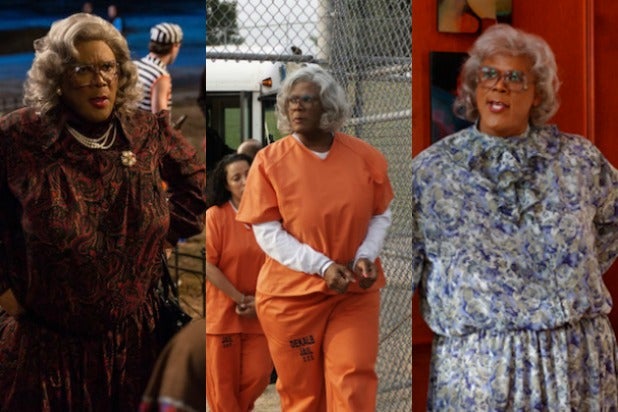

Here Perry invokes Matthew 5:5, “Blessed are the meek for they shall inherit the earth.”Įven when Perry has a black womanist blueprint to follow, he manages to change the plans to fit his own vision. Perry is telling the audience that female haughtiness comes at a price, and if those women want truly happy lives they will settle for simpler lives. He does so by putting both ingénues in brutally abusive relationships with their husbands. In the films, Perry is meticulously plotting the ways in which he hopes to humble them.

They are believed to be “uppity” by their families because they indulge in the luxuries of being upper class. In Tyler Perry’s first film Diary of A Mad Black Woman and in his second film Madea’s Family Reunion, both leading ladies are in relationships with wealthy men. Perry seems to have a great distaste for women who have forgotten their roots or forsaken their families in lieu of a financially, romantically, or sexually fulfilling life. In many of Perry’s films the action centers a black woman who is either in need of being “brought down a peg” or who is soon due for a great tumble. While the solutions usually come from a patriarchal God, so do many of the problems, and Perry follows an Old Testament formula of punishment for sin. In his plays and films alike most of the conflicts are resolved through a combination of prayer, an impromptu church attendance, or some sort of gospel solo. They were influenced to flock to theaters because of the black female protagonist (notably dark-skinned), but when they were in the audience they were in store for less of a story of a black woman’s independence and more about her punishment and subsequent repentance.Īll of Tyler Perry’s work hinges on Christian moralism. Black women came out in droves to see Perry’s films, more specifically, Christian black women. He also opened up the eyes of the film industry to a demographic long ignored: middle-aged black women. Though it wasn’t exactly a box office hit, Perry proved himself to be a profitable filmmaker. Filmed on a $5.5 million dollar production budget, Diary of A Mad Black Woman earned $21,905,089 in it’s opening weekend, and over $50,000,000 overall. Tyler Perry made his directing, producing, and acting debut as Madea in 2005’s Diary of A Mad Black Woman based on his play of the same name. Madea and Tyler Perry were beloved by theatergoers and soon enough they became beloved by moviegoers. The addition of Madea saw Perry bring in more than $100 million in ticket sales at the height of his theater career.

Madea came to be the connecting character in almost all of his plays to come. Based off of his loving mother, and several other matriarchs in his life, Madea, a gun-toting, part-time Christian, and sexually explicit grandmother (played by Perry himself) helped propel Tyler Perry into a new stratosphere. Much of this success is attributed to a new character that Perry introduced into the zeitgeist. After a few failures and a slight success with I Know I’ve Been Changed on the “chitlin’ circuit”, he finally struck gold with 2000’s I Can Do Bad All By Myself. After leaving his abusive childhood home, Perry went to Atlanta to pursue a career as a playwright. He recalls weekly church services that they attended together as a source of connection for the two. He was raised in a physically abusive home with his father, but he has maintained that his mother was a bright light in his life. Tyler Perry (born Emmitt Perry Jr.) has spoken openly about his upbringing.


 0 kommentar(er)
0 kommentar(er)
